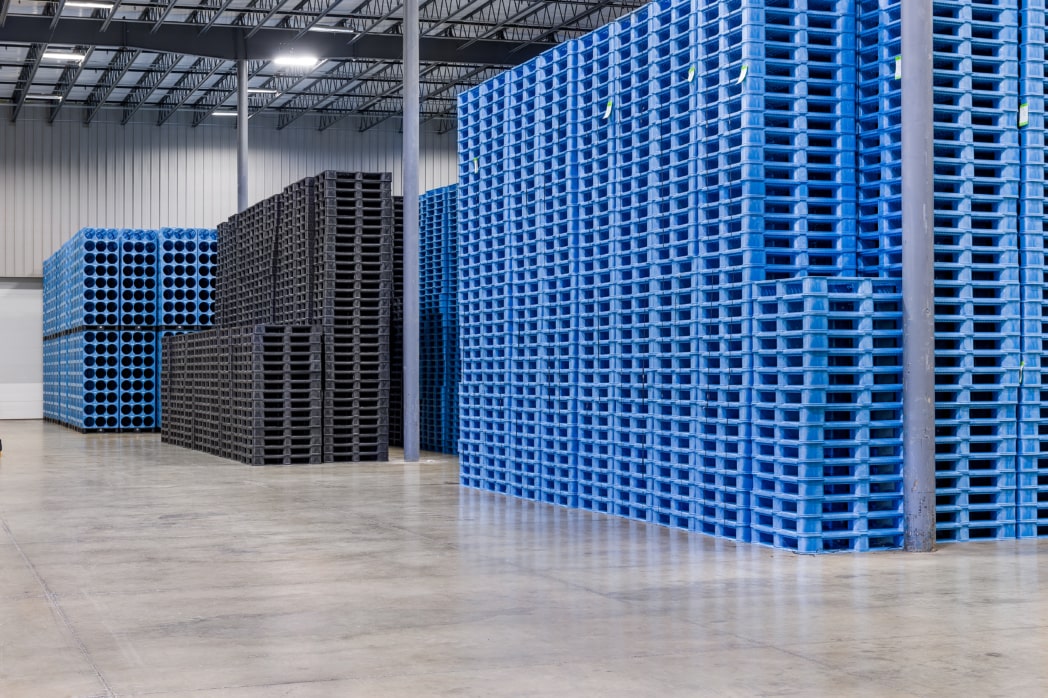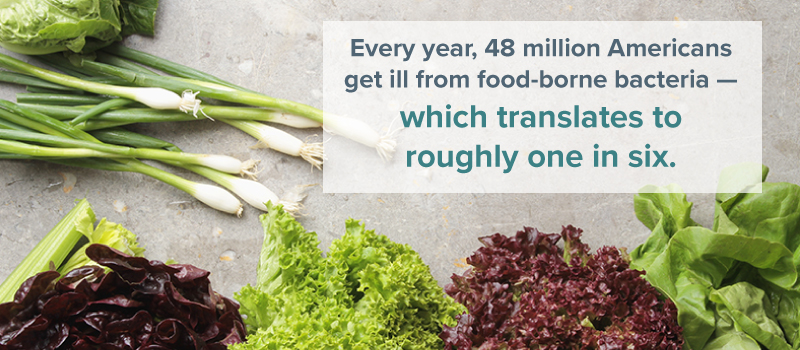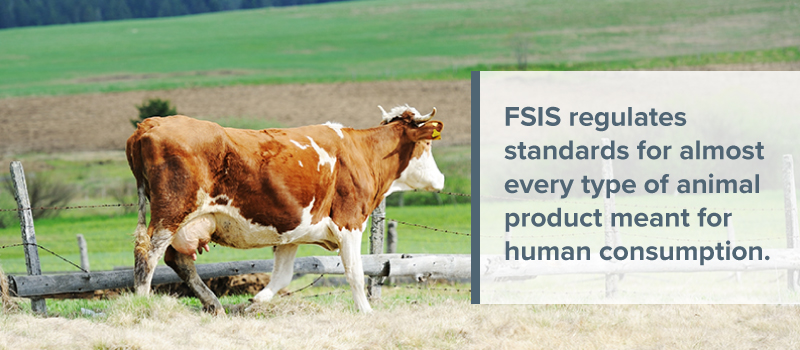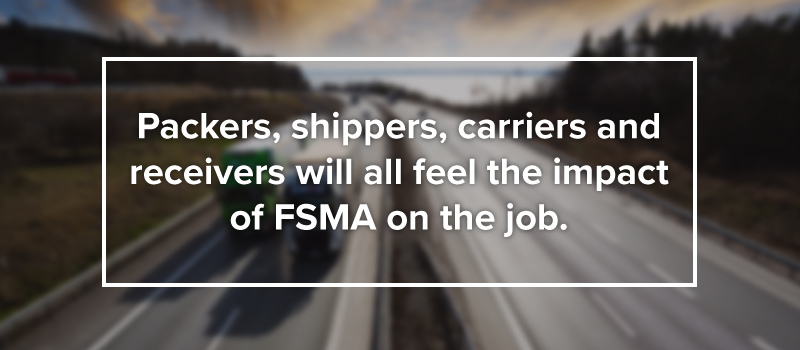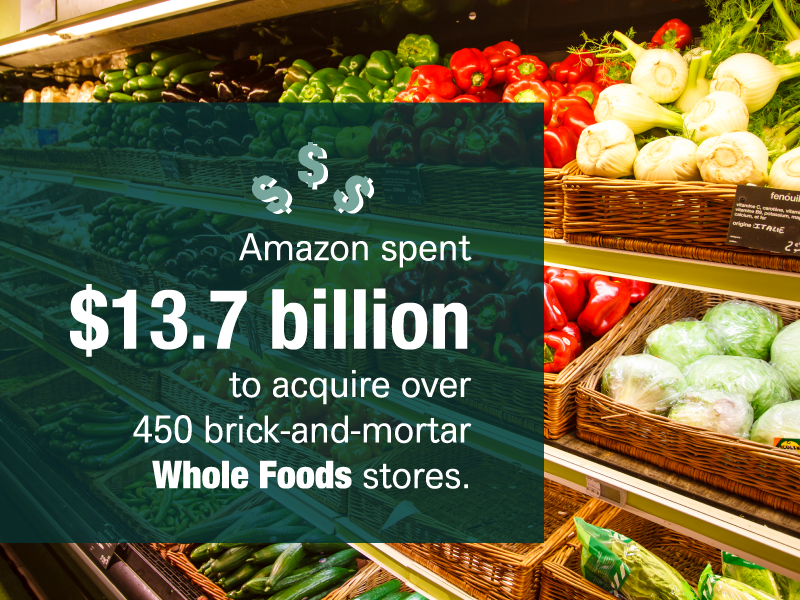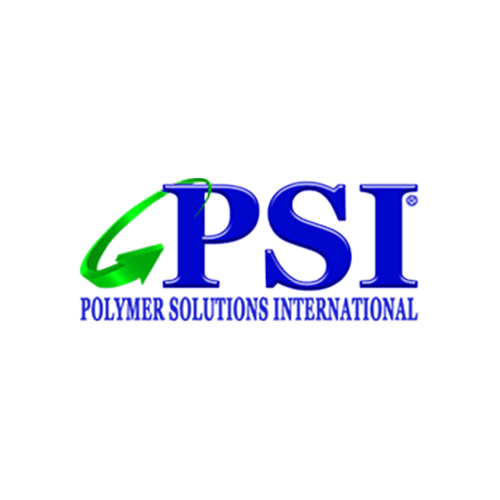Make Plastic Pallets Your Secret Weapon in the Battle for Sanitary Shipping
Recent government legislation has changed the standards for sanitary shipping. Since the passing of the Food Safety Modernization Act (FSMA) by the Food and Drug Administration (FDA), hygiene in the food transportation industry will undergo an overhaul. FSMA represents the biggest series of food safety reforms in the past 70 years.
A core strategy of FSMA centers on increased hygiene during shipping. As the shipping industry changes, the industry leaders look for new ways to meet FSMA rules. One method includes updating pallets from wood to plastic. Plastic pallets offer a more hygienic option for food shippers and a smart choice for companies seeking to meet FSMA standards.
As the industry shifts toward FSMA, some companies still aren’t entirely familiar with it. To understand the full implications of FSMA and how it might affect your business, several areas require investigation:
We, at Polymer Solutions International, Inc., see FSMA as determining the direction of future food shipping. As the industry develops solutions, we see an increasing number of businesses choosing FDA-approved plastic pallets as their choice.
To properly understand how the shipping industry gets from A to B, it’s helpful to understand our starting point: FSMA.
What Is FSMA?
FSMA is a series of regulations passed into effect by President Barack Obama in early 2011. The deadlines for adjusting were spaced out to accommodate businesses, and for the food transportation sector, the final date for compliance was mid-late 2016.
FSMA attempts to drastically improve food safety through a focus on prevention rather than reaction. This represents a crucial difference in comparative policy. Before, the FDA simply mopped up the outbreaks of food-borne illness.
Moreover, the structural limitations of the FDA’s response occasionally prevented them from acting on tips. For instance, if they heard of improper food handling in a certain facility, they couldn’t react unless an outbreak occurred. By then, the FDA could identify the problem’s source and punish the guilty party, but the FDA was helpless to prevent further incidents at other locations.
Using a more proactive and preventative strategy, FSMA is designed to mitigate the factors that cause food-borne disease. Every year, 48 million Americans get ill from food-borne bacteria — which translates to roughly one in six. Among those, 128,000 require hospital attention, and 3,000 people die. FSMA seeks to curb these atrocious numbers.
Recent Food Safety Issues
Every so often, outbreaks caused by improper shipping pop into the news headlines. FSMA takes aim directly at preventing the type of occurrences which cause bacteria to spread from place to place.
One recent case of contamination concerns the ice cream company Blue Bell. Just last September 2016, Blue Bell rushed to recall two flavors of their cookie dough ice cream. Unbeknownst to Blue Bell, the ice cream contained traces of the harmful bacteria Listeria. Faced with a massive 10 state recall, Blue Bell hurried to find the source of the Listeria.
After conducting a thorough investigation, Blue Bell arrived at the conclusion that the Listeria had come from their supplier Aspen Hills Inc. — which responded by issuing their own product recall. In Aspen Hills Inc.’s statement, they failed to mention their role in Blue Bell’s recall, nor did they reveal which Alabama and Texas entities were shipped the 1,936 cases of possibly contaminated cookie dough.
Thankfully, no one got sick, but for those of you residing in Alabama or Texas, don’t consume any Blue Bell cookie dough products with the product codes listed on the Food Safety News website.
A subsequent recall has also targeted the following ice cream companies: Blue Bunny, Publix and Chocolate Shoppe Ice Cream Company Inc. It’s wise to avoid cookie dough ice cream from these companies if you’re unsure as to the date of their packaging.
Instances like this highlight the need for proper food safety precautions during transportation. Although it’s not clear whether the Listeria developed during shipping, it’s still important to limit contamination during transportation by using only the cleanest shipping equipment possible.
Another outbreak that occurred in September 2016, concerned Clear Spring Foods Inc. This company discovered that the flour they use for their breaded trout product contained E. coli. The flour in question was produced by General Mills, and they responded by conducting a recall of 45 million tons of flour. In this case, 63 people became ill in 24 states.
Scenarios like Blue Bell and Clear Spring Foods exemplify the need for proper safety precautions when shipping food. FSMA seeks to prevent cases like these by developing a culture of vigilance between producers, shippers and manufacturers.
Under FSMA, shippers will play an integral role in limiting the development and spread of bacteria by adhering to hygienic practices, including the adoption of more hygienic plastic pallets.
Food Safety and Inspection Services
In discussing FSMA, it’s helpful to know about one of the agencies responsible for enforcing FSMA legislation. The Food Safety and Inspection Services is the government body tasked with food safety oversight in the United States. FSIS regulates standards for almost every type of animal product meant for human consumption. Following the enactment of FSMA, FSIS will constitute a keystone organization in the mission to implement FSMA.
FSIS monitors the methods of animal slaughter conducted by facilities in the United States. They ensure all animals receive treatment in compliance with the Humane Methods of Slaughter Act. They also ensure facilities uphold certain standards of health and wellbeing of their livestock.
FSIS employs 8,000 in-plant and frontline personnel who observe the practices of 6,200 facilities.
Their job concerns preventing harmful outbreaks from occurring at the early stages. They inspect cattle for any maladies and ensure the containment of possible illnesses. Their verdict on a plant’s operation carries significant weight. If FSIS deems a plant unfit, the plant faces severe actions and can even be permanently closed.
FSIS also examines the final product, ready for shipping. They carefully watch for any signs of disease before the final stages of animal processing. Any animal carcass that appears unfit is quickly removed and sanitarily disposed.
FSIS represents a firm ally of FSMA and the transportation industry. They greatly aid the prevention of unfit food from ever entering a shipping container. With no illness present, FSIS makes all of our lives easier.
How Is FSMA Strategy Different From Prior Policy?
FSMA hinges on stopping outbreaks before they happen. Whereas previous efforts sought to limit public exposure following an outbreak, FSMA seeks to adapt practices. New habits will help prevent outbreaks before they occur.
Before FSMA, food safety transportation laws lacked integration. The new system promotes a consistent set of rules for food shipping. Previous laws contained overlapping and redundant food safety laws, but FSMA integrates them all under a single banner.
FSMA attempts to integrate everyone down the line, using the common language of responsibility. During a shipment, lack of oversight can lead to errors. FSMA brings the entire process into a unified system. First off, all shipping parties that qualify will register with the FDA’s FSMA program.
In addition to enlisting in FSMA registration and paying the $500 fee, food facilities must issue a Hazard Analysis and Risk-based Preventive Control (HARPC) plan. This written report requires certain information, including:
- Accurate description of possible food safety dangers
- Recommendations for dealing with these threats
- Details on the facilities’ strategy for dealing with the issues
- Proof of implementing safety measures and evidence of ongoing checks
- Tactics the facility will employ to contain any problems should they arise
Besides establishing an HARPC plan, FSMA also requires other safety practices. Prevention starts from inception. Even before a food item exists, the conditions for its production must meet certain standards. Otherwise, the food might grow in an unhealthy environment.
For produce, FSMA specifies that the growth and harvest of produce (vegetables and fruit) must satisfy minimal standards. Food scientists will continue to expand and refine these standards.
Who Does FSMA Affect?
In short, FSMA concerns nearly everyone involved in the American food industry. After all, it’s a pivotal moment for food regulation. FSMA will continue to affect the way millions of Americans see preventative food safety, and everyone from farm to fork will experience the effects.
For those in the transportation sector, FSMA concerns all motor vehicle and rail shipping employees down the line. Packers, shippers, carriers and receivers will all feel the impact of FSMA on the job. Shipping companies that operate by air are exempt from motor and rail regulations.
Another exception concerns foreign shippers. If Canadian or Mexican products simply pass through American borders, they maintain exemption from FSMA. Only products meant for American consumption must follow the guidelines.
So, which requirements does FSMA place on food transportation? The areas break down into several subcategories:
- State of equipment: The state of vehicles and transportation equipment can’t lead to unsafe food. This regards the upkeep, cleanliness, proper refrigeration and temperature control. The equipment must exist in a state that permits consistent cleaning and maintenance.
- Proper food handling: This section regards precautions against cross-contamination or spoilage. Shipments must keep raw food separate from ready-to-eat food. Otherwise, bacterial cross-contamination can occur. Unclean non-food material must also remain separate from consumable products.
Equipment must undergo thorough sanitation between shipments as well. Otherwise leftover allergens can infect the next shipment. Consistent temperature within the shipping container also falls under this category. Improperly refrigerated environments lead to unwanted bacterial development.
- Training: Everyone involved in the shipping process must know the proper safety procedures. This includes keeping records of the training for carrier personnel. To give you an idea, this type of training includes the behaviors mentioned in the above sections.
- Documentation: Keep your paperwork. It’s wise to retain all records pertaining to agreements, training certification and procedures. File them away — for at least one year.
Exemptions
If you’re a business owner, don’t panic. Many companies don’t need to comply with all the new regulations, training and documentation. If you’re involved in one of the following sectors, you can avoid the new protocols:
- Farms: Transportation handled by farm facilities don’t require the same precautions.
- Transit shipping: Food that only passes through the United States en route to another country is exempt.
- Animal food: Byproducts of human food used to feed animals don’t require the same FSMA standards. If this recycled food material doesn’t need to go undergo further processing, it maintains exemption.
- Sealed containers: Food transported entirely within hermetically sealed containers receives exemption. The contents must be properly refrigerated, however, if required.
- Very small businesses: Companies that earn less than $500,000 annually don’t fall under FSMA jurisdiction. Picture a roadside berry stand run by a local farmer. This isn’t the big scale type of operation FSMA seeks to regulate. No need to bother the berry farmer.
- Live animals: Shipment of animals destined for human consumption fall under different rules.
- Gasses: Gasses used in the preparation of food, like nitrogen or carbon dioxide, aren’t affected.
- Foreign markets: Exports sent from the United States to foreign markets are exempt.
It’s always good to know where you stand with FSMA. As we all prepare for FSMA compliance, it’s wise to consider how new specifications might impact your shipping. Perhaps the most sweeping changes for food transportation involves cleanliness.
FSMA laws put pressure on companies to ensure the hygiene of their vehicles and equipment — they want a clean machine. As shipping providers hurry to modernize their operations, one question keeps popping up: What’s the best way to ship food, in a renewable, easy to clean, efficient and affordable way?
We have the answer.
Hygienic Food-Grade Plastic Pallets
A major aspect of food shipping involves placing packages on pallets. Traditionally, the material used to build shipping pallets was wood. Since FSMA, more and more companies are turning to hygienic food-grade plastic for their pallets. Why the shift? It comes down to the fact that it’s difficult to keep wood clean. Here are some of the benefits of plastic pallets:
Increased Cleanliness
In the bump and bustle of shipping, wood gets damaged. Over time, wooden pallets get splinters, jags and fissures. Wood rots, decays and decomposes. All these aspects factor into one result: bacteria.
The new FSMA sanitary food transportation rules have made bacteria illegal, so to speak. The concentration on reducing bacterial presence during shipping has encouraged the move to plastic pallets.
Not only do plastic pallets fight bacteria better than wood, but they’re also easier to clean. Plastic responds better to cleaning solutions, dries faster and requires less time to clean. These factors encourage ease of keeping things more sanitary.
Why Plants Prefer Plastic Pallets
In order to meet FSMA requirements, an increasing number of shipping companies are switching to plastic pallets. With these companies choosing to modernize their businesses, the sales of plastic pallets have greatly increased.
The main target recipients of these plastic pallets are food and pharma industries. Plants prefer plastic. The reason for these industries opting to modernize using plastic pallets concerns increased need to maintain cleanliness, as demanded by FSMA. Plastic pallets achieve a much higher level of sanitary standards than wooden pallets. This fact, coupled with the increased FSMA hygiene requirements, has led a growing amount of shipping companies to select plastic pallets as their primary choice for pallets.
Tracing Your Supply
Another major component of the new food safety transportation standards concerns the supply chain. The process of shipping food involves several parties. The main groups include packers, shippers, carriers, and receivers. These people focus on their role. They do their jobs well and concentrate on maintaining food safety on their level.
During discussion rounds, congress asked the FDA an important question about responsibility in the supply chain. Was it reasonable to expect a member of the supply chain to ensure the entire chain was following FSMA protocol? The answer came back as a resounding yes.
Under the new system, each member of a supply chain must act as a watchdog for the other members. Several implications follow from this ruling. Total integrated communication must occur every step of the shipment.
Fortunately, there are many ways to accomplish this now. Technological advancements make monitoring shipments easier than in the past. It’s also clear whether a shipment arrives with anything suspicious. The whole chain maintains communication and self-policing. Irresponsible groups within the chain will be observed internally. If one group keeps messing up, the other members may seek to exclude that party. This approach further helps FSMA realize its vision as an outbreak prevention policy.
When it comes to plastic pallets, they offer the supply chain an extra advantage in safety, but it’s also easy to put tracking devices on them. This increases the ability to scan, track and monitor shipments. Although this technology hasn’t become mainstream yet, there’s no reason to think it won’t in the foreseeable future.
A shipment’s location could appear on GPS and show its en route status. Strategies like this will increase a supply chain’s success with regard for business, FSMA compliance, culpability and food safety effectiveness.
Choose Polymer Solutions International Inc. for Your Plastic Pallets
We at Polymer Solutions International Inc. understand the implications of FSMA and see our hygienic food-grade plastic pallets as an excellent option for ensuring full FSMA compliance. Not only are our plastic pallets fully FDA approved, but they come in several varieties, so you can choose the ones to best suit your needs.
To learn more about our plastic pallets, visit our website. If you have any questions about our products and how they’ll benefit your business, feel free to contact us.
Our expertly trained and helpful staff look forward to hearing from you.


